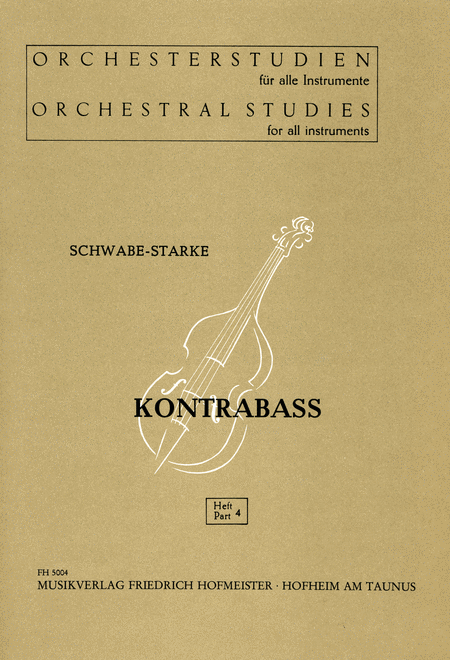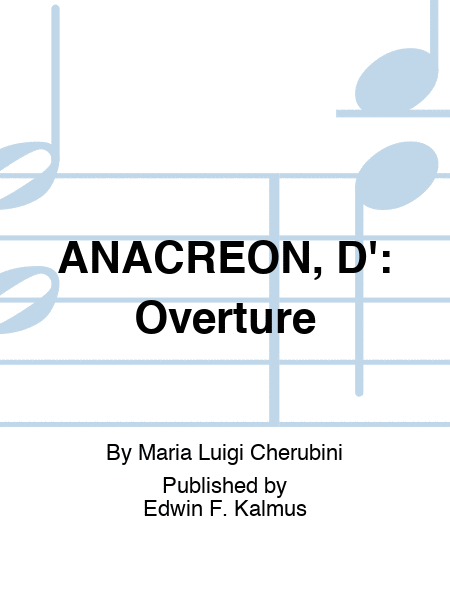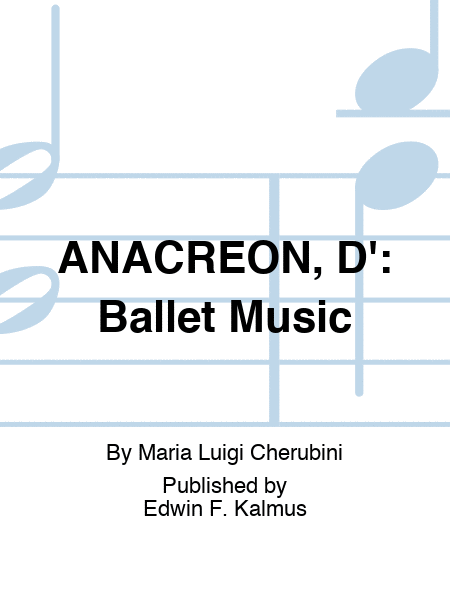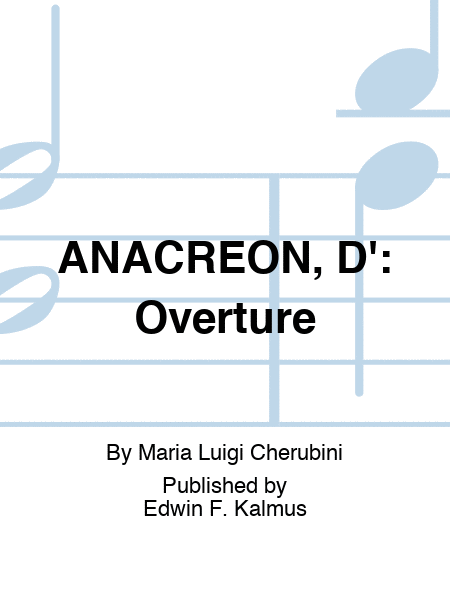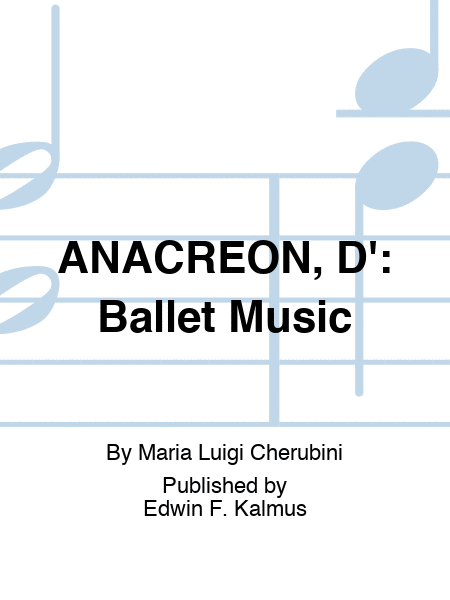Luigi Cherubini (1760 - 1842)


Luigi Cherubini (September 14, 1760 ? March 15, 1842) was an Italian composer. Although his music is not well known today, it was greatly admired by many of his contemporaries. Beethoven considered him to be the greatest dramatic composer of his time.
Cherubini was born Maria Luigi Carlo Zenobio Salvatore Cherubini in Florence. His instruction in music began at the age of six with his father, himself a musician. By the age of thirteen, he had composed several religious works. From ... (Read all)
Source : Wikipedia
Cherubini was born Maria Luigi Carlo Zenobio Salvatore Cherubini in Florence. His instruction in music began at the age of six with his father, himself a musician. By the age of thirteen, he had composed several religious works. From ... (Read all)
Source : Wikipedia
FREE SHEET MUSIC
Anacréon
Active criterias:
Search
| ||||||||||||||||||||||||||||||



